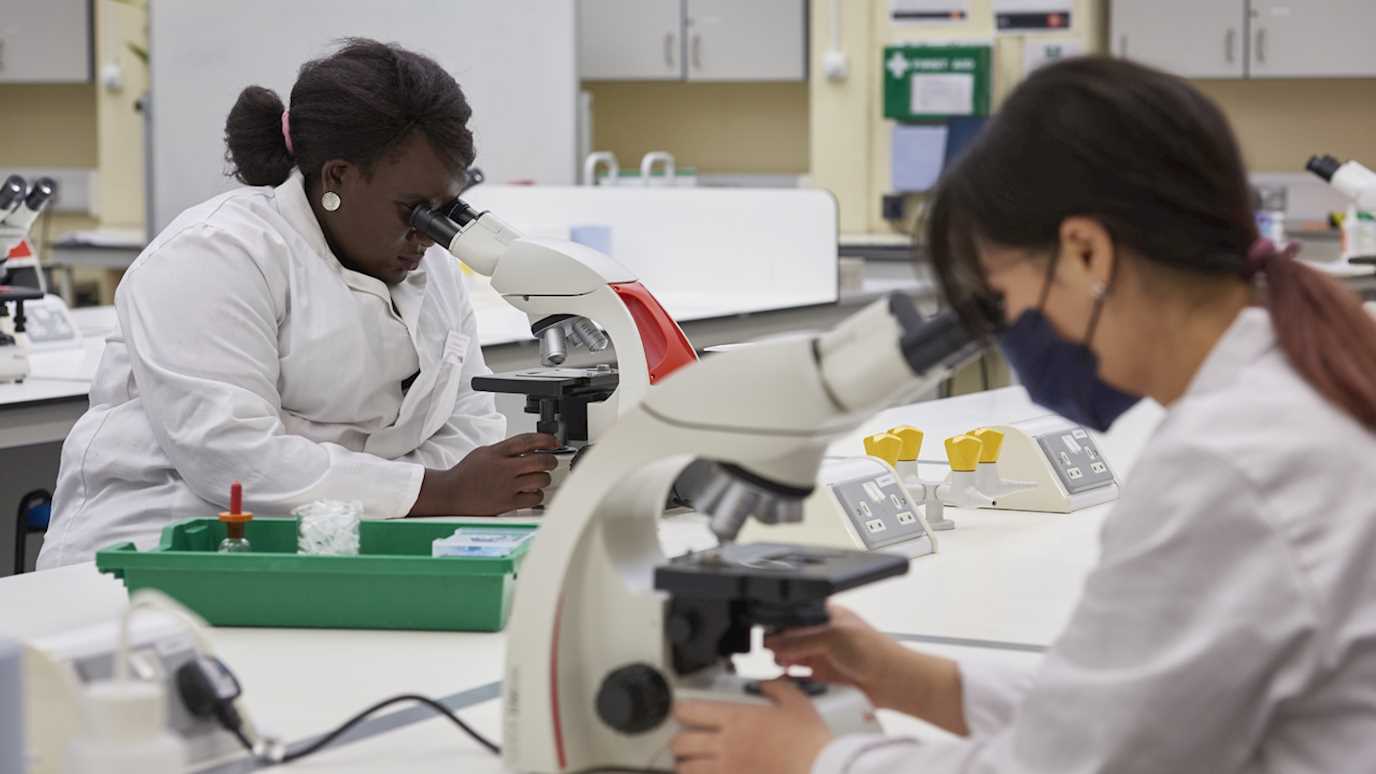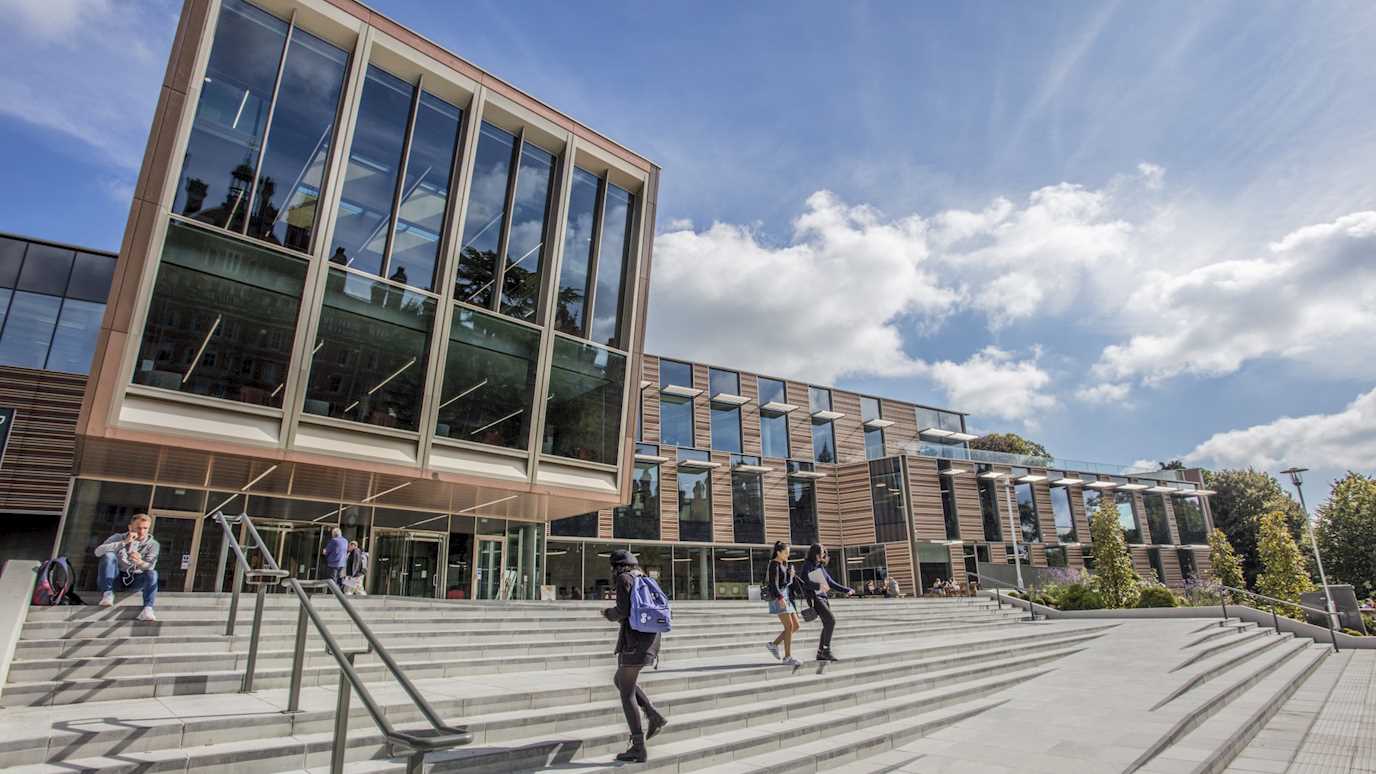Tradition, innovation and creativity
English literature as we teach it involves the study of over a thousand years of writing and cultural history across different continents. It also involves the study of fundamental questions about the status of texts, their context and interpretation, and about how we negotiate narrative, rhetoric and meaning. Our students emerge with important skills in analysis, research, argument, and writing, and with the flexibility to thrive in many different careers. Our graduates enter the media, arts and public administration, retail, PR, writing, teaching, and a range of other professions. Many go on to postgraduate study with us or with other leading universities.
Read our undergraduate prospectus
From degree to workplace
The skills you acquire here will help you enter the job market with confidence. We have an award-winning job placements scheme that sends students out into the workplace in summer; an employability 'Passport' scheme; and each year we take students to the South Bank to hear from and meet alumni in the creative industries, journalism, marketing and other areas of work.
Our modules
We offer a huge range of undergraduate modules. Students in second and third year chose all their modules on the vast majority of our degree programmes. You can find out more about our English modules here.
Creative Writing students take some of their modules from the English list, but also have their own specialist creative writing modules. You can read about those here.
FAQs
Degree programmes
Click on a degree below to learn more about course structure, teaching & assessment, fees & funding, and entry requirements.
| UCAS code | |
| BA English | Q300 |
| BA American Literature and Creative Writing | Q324 |
| BA English and American Literature | QT37 |
| BA English and Creative Writing | QW38 |
English as a major subject
Joint degrees
Why choose English at Royal Holloway?
We study great works of literature and encourage you to cultivate flexible and responsive thinking, to develop advanced skills in writing, communication and argument, and to think critically about art, culture and life. The skills you acquire here will help you enter the job market or go on to postgraduate study with confidence. Here are a few reasons why students choose English at Royal Holloway:
- Breadth of expertise: We are a large, friendly and caring department, and pride ourselves on treating you as an individual. Our community of students and staff is diverse and of the highest calibre.
- Great teachers: you’ll be taught by academics who have won national and university prizes for teaching and student support. • Great researchers: over two thirds of our research was judged ‘world leading and internationally excellent’ in REF 2014: we write ground-breaking books, talk or write in the national media, advise the Royal Shakespeare Company, the Department for Education and other national and international bodies. This means that our courses cover and develop the most up-to-date ideas.
- Great writers: our creative writers are leading fi gures. Jo Shapcott won the Queen’s Gold Medal for Poetry; Lavinia Greenlaw won the Prix du Premier Roman; Ben Markovits is one of Granta’s Britain’s 20 Best British Novelists under 40 (as are two of our creative writing graduates: more than any other institution).
- Wide-ranging curriculum: we cover the whole range of the subject and off er you many options to explore your interests. We have small group tutorials and a special first year course designed to help you make the transition to university.
- Support network: we provide you with personal advisers, a dedicated writing tutor, and a range of other learning resources including Moodle, our virtual learning environment. All of our students also have easy access to central London resources including the University of London’s Senate House Library.
- Dynamic community: we have active student societies, readings from poets and novelists, reading groups covering texts both on and off the curriculum, an annual arts festival on campus, creative writing anthologies, and London gallery and theatre visits.
- Valuable skills: employers think of English as ‘premier league’ subject, and we work to develop knowledge and skills in communication, argument, research and in learning how to learn. We have a work placement scheme and a focus on employability.
- A superb degree: Royal Holloway graduates gain a prestigious University of London degree.
What are the entry requirements?
General Entry Requirements
English Literature or English Language and Literature at A level, or equivalent, is required. Select your degree programme from the table above to learn about requirements specific to your course.
International Students
Each year we admit a number of international students. Candidates from overseas should also use the UCAS system to apply. Guidance about the application process is available through the university's Admissions Office, which you can reach via email at: study@royalholloway.ac.uk
We recognise a wide range of national school-leaving examinations. For further details of all acceptable qualifications go to: royalholloway.ac.uk/international/ yourcountry
Gap Year & Mature Candidates
We are happy to accept applications from candidates who wish to take a year off between leaving school and entering university. If we offer you a place, and you meet the conditions, your entry into the department the following year is guaranteed. The department also welcomes applications from mature candidates, and they are invited to contact our Admissions Tutors for further information.
How do I apply?
How to Apply
Click here to view Royal Holloway's application guidance page. This includes information on when to apply.
Applications for admission to an undergraduate programme should be made through UCAS (Universities and Colleges Admissions Service): ucas.com. Royal Holloway’s institution code is R72. Individual course codes are listed in the table above.
We strongly suggest you attend an Open Day. These events let you get a fuller picture of our courses, meet staff and speak to current students, and experience some sample teaching.
If you have any further queries about specific courses and application process, please email the relevant Admissions Tutor:
For English (Single Honours)
Dr Cath Nall, EnglishSH@royalholloway.ac.uk
For English & Creative Writing
Professor Ben Markovits, EnglishCW@royalholloway.ac.uk
For English & Drama and English & Film
Dr Christie Carson, EnglishDrama@royalholloway.ac.uk
For all other Joint Honours
Dr Cath Nall, EnglishJH@royalholloway.ac.uk
What is the student experience like?
You'll enjoy a friendly campus with great staff, facilities, and a variety of social events and activities.
The English department provides a very relaxed and informal environment with staff and students on first-name terms. Students often set up reading groups with the encouragement and support of the staff : recent examples are the Old English Reading Group and a forum in association with the department’s Centre for Victorian Studies. During the summer term staff invite students to informal reading groups. Recently these groups have read Moby Dick, the stories of Raymond Carver, and have watched a range of Beowulf films.
Teaching & Assessment
You will take the equivalent of four fullunit course units each year. The teaching pattern varies between years: in year one, you are taught by lectures and seminars and also have regular small-group meetings with staff (Foundation Tutorials), and student-led meetings (Study Groups) supporting seminars. In year two, a lecture and a follow-up seminar per course is the norm; and in year three you will encounter both that pattern and two-hour seminars. Creative Writing is typically taught through workshops. Most courses have one-to-one meetings where staff provide feedback and you discuss work submitted. Students can book sessions with a dedicated writing tutor, and also take courses at the Centre for the Development of Academic Skills (CeDAS). Library and IT training are provided throughout the degree. Seminar groups, which are the backbone of our teaching, typically comprise 10-15 students. They may include a presentation on a prepared topic by a student or group of students, followed by a guided discussion aimed at opening out the text and its contexts. Other teaching styles are also used. Assessment is by a variety of methods: traditional exams, take-home papers, essays, workbooks, assessed presentations, online projects, etc. First-year results qualify you for the second year but do not contribute to the degree award; grades in years two and three are weighted 1:2.
English Literature Society
Students participate in the English Literature Society, which organizes social events, as well as a range of other activities on campus including drama, radio and print journalism, sport, and music. There is a very active student volunteering team which provides students with the opportunity to help others and broaden their experience.
Creative Writing
Students in the English Department who are not doing a BA including Creative Writing may take a specially-designed creative writing class in years two and three of their degree. Students across all of our degrees are involved in student publications which the department supports including magazines, anthologies and performance pieces. Regular readings are also organized by Creative Writing staff and there is our annual PLAY! creative festival on campus.
Readings
As part of our vibrant creative community, the department hosts a series of public readings by novelists and poets with events take place at least twice a term. The readings are free and everyone is welcome – students, staff, alumni, book clubs and the local community. After each reading, there is a Q&A session and audiences are usually given the opportunity to buy a discounted copy of the book. We have recently welcomed Andrew Motion, Howard Jacobson, James Meek, Helen Gordon and our own graduate, Daljit Nagra.
Campus
Royal Holloway’s beautiful parkland campus is only 40 minutes by train to London Waterloo giving our students access to all the benefits of London’s cultural life. The department is housed in the award-winning International Building, which boasts excellent teaching rooms as well as the latest IT and AV facilities. Royal Holloway has an excellent library, with an extensive English literature collection and a range of electronic texts. Students are also encouraged to use the University of London Library at Senate House.
Is there a study abroad option?
Yes! Undergraduates in English have the chance to study abroad for an extra year. Students apply during their second year, and, if successful, spend their third year abroad, before returning for a final year at Royal Holloway.
The international year greatly broadens students’ horizons and cultural experience. Students can study at one of the many universities with which we have an exchange agreement: in Australia, Canada, China, Japan, Korea, Mexico, New Zealand and the USA.
Students studying English & Modern Languages will automatically spend their third year in a country appropriate to their chosen foreign language and return to Royal Holloway for their fourth year.
Learn more about our study abroad options, eligibility, applications, and deadlines.
What if I want to take a course in another department?
Students in English may take a course in other departments in years two or three of the degree. In the case of BA English & American Literature this is encouraged as part of the programme, with students broadening their experience where possible with a course in American history, politics or fi lm in the relevant department.
What do you recommend I read before beginning my Degree?
Studying English involves, of course, a lot of reading, but also a great deal of pleasure. For preparation, we encourage you to read widely, ambitiously, with an open-mind, and for fun. The period between school and university is a great time to explore new writing: alternate what you choose to read between page-turners and more challenging texts.
There are several works we recommend because we think they’d be useful and pleasurable for you to read in advance. None of the list is obligatory until you arrive – and there’ll be plenty of time to read then of course. But it is always handy to have some reading under your belt. You can find an indicative reading list here.
Whether you follow the list or follow your nose, the most important thing is to enjoy reading broadly and with a sense of adventure.

























